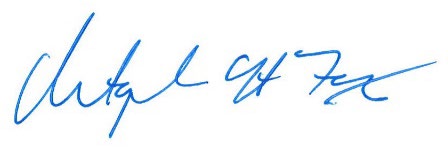November 9, 2023
Tara A. Schwetz, PhD
Acting Principal Deputy Director,
National Institute of Health
9000 Rockville Pike,
Bethesda, MD 20892 USA
Re: Request for Information on the DRAFT Scientific Integrity Policy of the National Institute of Health.
The American Association for Dental, Oral, and Craniofacial Research (AADOCR) is the leading professional community for multidisciplinary scientists who advance dental, oral, and craniofacial research. We appreciate the opportunity to share our thoughts on the National Institute of Health’s (NIH) draft scientific integrity policy. AADOCR recognizes and applauds NIH’s effort to preserve scientific integrity throughout all NIH activities, establish key roles and responsibilities for those who will lead the agency's scientific integrity program, and establish relevant reporting and evaluation mechanisms. To respond to this request for comments, AADOCR engaged its Science Information Committee and its Board of Directors.
Scientific integrity is an essential tenet of every scientific study and discovery1. It provides certification that the data can be verified, repeated, and reproduced1. It is especially critical in the biomedical research space where scientific innovation and research discoveries contribute to life saving and quality of life improving measures. Therefore, AADOCR would like to congratulate NIH on a very detailed and comprehensive draft policy that aims to foster scientific integrity so as to ensure that scientific findings are objective, credible, and readily available to the public, and that the development and implementation of policies and programs is transparent, accountable, and evidence based. The additions to the policy on the roles and responsibilities of the Scientific Integrity Officer and the responsibilities of the Scientific Integrity Council are clear, logical, and necessary. Additionally, the inclusion of prohibitions against political interference is a socially responsible addition in all areas where it was introduced.
AADOCR would like to provide considerations for two specific areas of the policy:
- Page two of the policy document defines the NIH Mission as “to seek fundamental knowledge about the nature and behavior of living systems and apply that knowledge to enhance health, lengthen life, and reduce illness and disability”. However, as the mission is currently under review to be potentially revised to “to seek fundamental knowledge about the nature and behavior of living systems and to apply that knowledge to optimize health and prevent or reduce illness for all people” AADOCR supports considering finalizing the scientific integrity policy only upon the confirmation of the new NIH Mission.
- The roles and responsibilities of the Chief Scientist was introduced on page 10 of the policy document. However, the definition of the term Chief Scientist provided on page 5, describes the Chief Scientist as the Principal Deputy Director. This indicates that the roles and responsibilities of the Chief Scientist will be carried out by the Principal Deputy Director. The introduction of a new title (Chief Scientist) to an existing position where that position is retained may be confusing to the public and policy makers. Some may make the incorrect assumption that Presidentially-appointed, Senate-confirmed NIH Director is the NIH Chief Scientist. Therefore, AADOCR supports considering, in lieu of a new title, providing clarification that the role of the Principal Deputy Director also includes the responsibilities listed under Chief Scientist within the policy document – oversight of all NIH scientific integrity policies and procedures. In the event that the Chief Scientist role would eventually evolve to an individual that is separate and apart from the Principal Deputy Director, AADOCR supports the consideration of “Deputy Director for Scientific Integrity” as a potential title for this employee. This is bolstered by the need to be sensitive to appropriation of and lack of respect for the Native American culture with the title “Chief” in creating a new position. [AADOCR recognizes the need to examine our own titles in this regard.]
AADOCR appreciates the opportunity to provide comments on NIH’s draft scientific integrity policy and stands ready to work with NIH through an inclusive process to safeguard scientific integrity.
If you have any further questions, please contact Dr. Makyba Charles-Ayinde, Director of Science Policy, at @email.
Sincerely,

| 
|
1Diaba-Nuhoho P et al. (2021). Reproducibility and Research Integrity: The Role of Scientists and Institutions. BMC Research Notes. 14(451).
2Bohanon M. (2022). DEI Expert Lee Bitsóí Explains Why ‘Chief’ Should Be Eliminated from Diversity Titles. Retrieved from: https://www.insightintodiversity.com/words-matter-dei-expert-lee-bitsoi-explains-why-chief-should-be-eliminated-from-diversity-titles/. Accessed on November 1, 2023.




